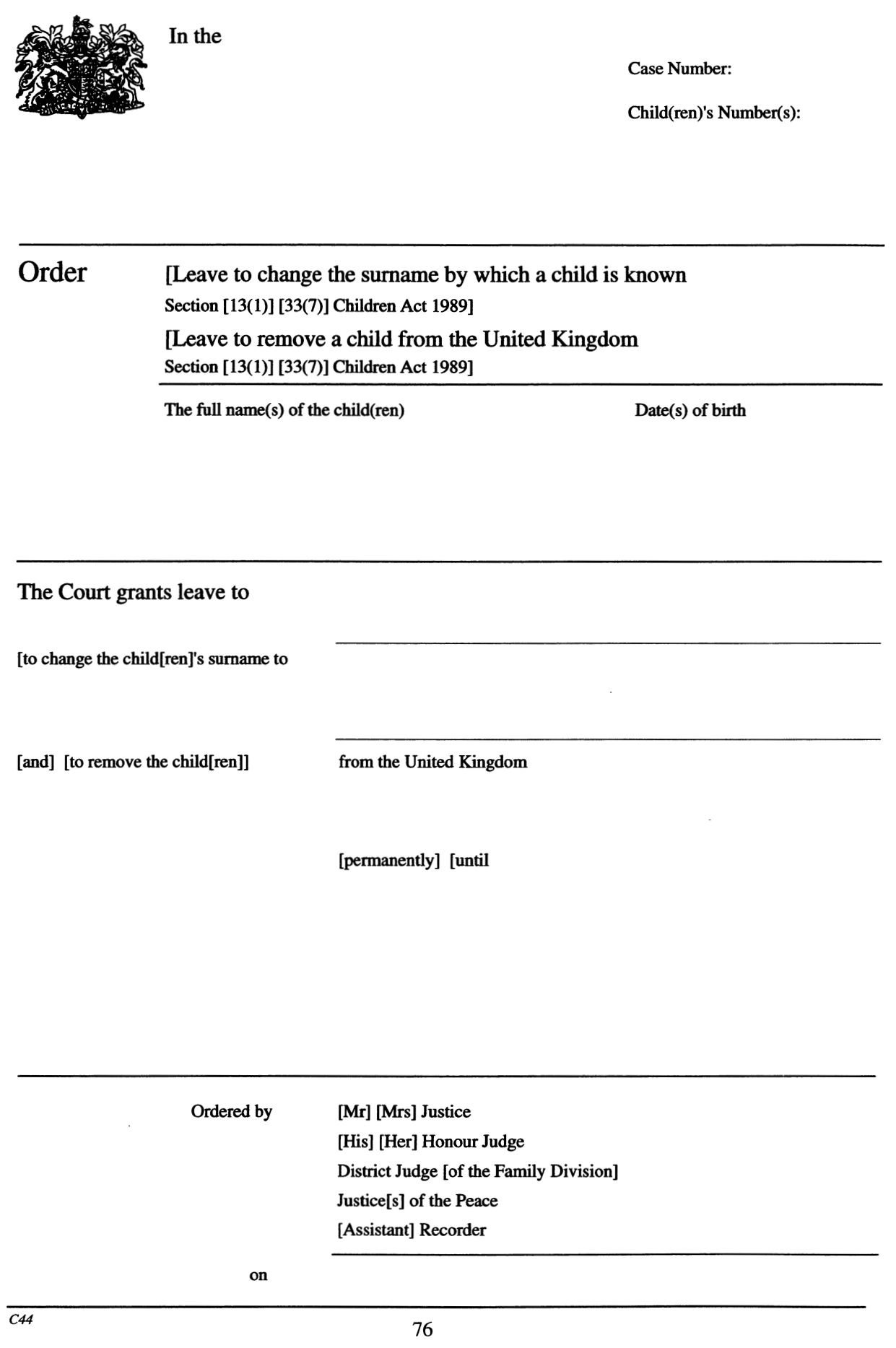Make a “free-standing” application to change a child’s surname when there’s a Care Order (England & Wales)

If you want to change a child’s surname, and you haven’t got consent from everyone with parental responsibility, you’ll need to have a court order allowing the child’s surname to be changed.
When you need to apply for this kind of order
You’ll need to make a “free-standing” application for an order under section 33(7) of the Children Act 1989 if —
- you want to change the child’s surname; and
the child is subject to —
- a Care Order (under section 31(1)(a) of the Act)
- an interim Care Order (under section 38 of the Act)
But if the child has also been placed for adoption (or an adoption agency has been authorised to place them), and an Adoption Order hasn’t been made yet, then you should make an application under the Adoption and Children Act 2002 instead.
Section 33(7) is in Part IV of the Children Act, so a free-standing application of this sort would be classed as “part 4 proceedings”.
If your application is successful the court will make an order conforming to Form C44 (pictured right).You’ll need to make a free-standing application under the Adoption and Children Act 2002 if the child has been placed for adoption (or an adoption agency has been authorised to place them), and an Adoption Order hasn’t been made yet.
You should make a free-standing application under section 13(1) / 14C(3) of the Children Act 1989 if the child is not subject to a Care Order (or interim Care Order), but they’re subject to —
- a Child Arrangements Order which includes arrangements relating to who the child is to live with, or when the child is to live with any person
- a Residence Order
- a Special Guardianship Order
You should apply for a Specific Issue Order (and not a free-standing application) when the child is not subject to any —
— or all such orders have come to an end (meaning they’re no longer “in force”)
Changing only the first name
If a child is subject to a Care Order (or interim Care Order), and you want to change only the child’s first name (and not their surname), then a court order isn’t needed — the local authority can make the decision to change a child’s first name unilaterally (by exercising their power to determine the extent to which the parents / guardians may meet their parental responsibility, under section 33(3)(b) of the Children Act — so long as they’re satisfied that it’s necessary to do so in order to safeguard or promote the child’s welfare).
How to apply
Family mediation is not legally required
When a Care Order (or interim Care Order) is in force, you don’t have to consider family mediation, or attend a Family Mediation Information and Assessment Meeting (MIAM).
Forms you need to fill in
You need to fill in form C110A . You should return the completed form(s) to a court that deals with family matters. They’re very detailed forms and it’s important that every section is filled in correctly.
Leaflet CB1 — “Making an application: children and the family courts” contains detailed instructions about how to fill in the form and make the application.
You’ll need to return your completed application form to the court nearest to where the child normally lives. Not all courts deal with family matters, so you should ask which is the right court (you can ask at your local county court).
![]() Find a court in England & Wales
Find a court in England & Wales
What it costs
You’ll have to pay a fee of £ 215 to apply for the court order. (See: Family court fees (EX50) )
You may be able to get a discount if you’re on specific benefits or have a low income.
![]() Find out if you have to pay court fees (and apply)
Find out if you have to pay court fees (and apply)

